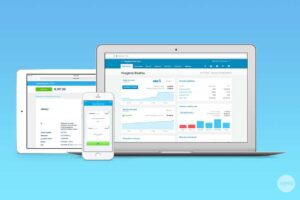Commencing with periods beginning with 1 January 2023, HMRC have introduced a new penalty and interest regime for VAT returns and payments. The late or delayed payment of VAT and VAT penalties has previously not necessarily attracted interest, and so the new interest scheme aligns late payments of VAT with other taxes payable to HMRC, such as Income Tax and Corporation Tax.
Late paid VAT liabilities, including monthly payments on account from large payers, VAT penalties, voluntary disclosures and HMRC assessments will now all attract late payment interest. The interest will run from the day after the due date for payment until the date the payment is actually made.
This only applies to VAT returns with a start date after 1 January 2023, and so for many taxpayers this won’t come into effect for a number of weeks, if not months, yet.
The new changes also apply to voluntary disclosures and HMRC assessments, with interest also running from the due date for payment of the VAT return on which the error arose.
A slight variation occurs with interest due on penalties, as the payment date for penalties is assumed to be thirty days after the date that the penalty is issued, and so interest will not begin to accrue until the payment date.
It may be favourable to enter into a Time To Pay arrangement with HMRC for a number of reasons, including cash flow and nuances of the new penalty regime. It is worth noting, though, that if HMRC has agreed a Time To Pay arrangement, interest will still accrue on the balance until it is paid off.
Late registration of VAT will not attract interest as though the taxpayer had been registered at the correct point, and will instead effectively have a long VAT return period. This means that they will need to pay the VAT required in full one month and seven days after the end of the long period. Normal late payment interest will accrue following that date.
The rate of interest payable is at the Bank of England base rate plus 2.5%, meaning interest will arise at 6.5% at the time of writing.
As well as late payment interest being payable by the taxpayer, HMRC will also pay interest to the taxpayer, however we would expect this to be much less frequent, as well as at a lower rate.
Where a VAT return gives rise to a repayment, HMRC will pay interest from the later of the date of the submission and the due date for the submission up until the date of payment. In practice, it is unlikely that HMRC will pay interest on VAT returns filed early, except where there is undue delay in the repayment of any VAT.
Where a voluntary disclosure is made with regards to an overpayment made, HMRC will pay interest between the due date of the VAT return on which the error arose and the date of payment, but only where the VAT return has a start date after 1 January 2023.
The rate of interest due on payments by HMRC is at the Bank of England base rate minus 1%, meaning 3% at the time of writing.
If you have any questions for our Tax experts, please contact us on 01242 776000 or tax@randall-payne.co.uk.



